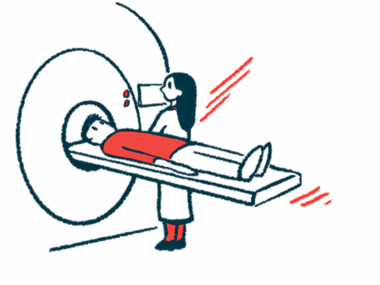Association Of British Neurologists Releases New Guidelines For Multiple Sclerosis
Written by |

The Association of British Neurologists (ABN) recently published new guidelines for how Disease Modifying Therapies (DMTs) for relapsing remitting multiple sclerosis should be monitored and prescribed in the United Kingdom, emphasizing the “right treatment at the right time.”
There are currently ten DMTs available on the National Health System (NHS) and eleven in Scotland. For MS patients, being prescribed a DMT can positively impact the course of multiple sclerosis and the prevention of relapses, as well as slow down the progression of the disease. In short, the ABN contends that the therapies enable individuals suffering with multiple sclerosis to have a much greater control of their condition and consequently their lives.
What do these guidelines suggest?
The new guidelines suggest that treatment with DMTs should begin as soon as possible after diagnosis. Additionally, MRI scanning should also be used as a routine tool to support diagnosis, to assess prognosis and to offer additional insight into treatment decisions and their possible impact. The ABN also stresses that every decision about appropriate treatment options, including the prescription of DMTs, should be made jointly between the patient with multiple sclerosis and their neurologist.
Nick Rijke, Executive Director of Policy and Research at the MS Society, said in a press release: “We are very pleased the ABN recommends treatment with DMTs and recognises the importance of shared decision-making between neurologist and patient when deciding which route to take. We also welcome the emphasis on MRI scanning to support diagnosis and make better treatment decisions. The combination of these recommendations should help ensure fast diagnosis and appropriate, timely treatment for people with MS. There are ten DMTs available on the NHS in the UK (11 in Scotland). However our evidence from 2012 showed six in ten people with a relapsing remitting MS are not taking DMTs. We call on government bodies like NICE and NHS England to ensure that everyone with MS has access to the right treatment at the right time no matter where they live.”
At present, there are few therapeutic options for those with progressive forms of multiple sclerosis, and those who have the relapsing-remitting form of the disease (RRMS) are at risk of eventually having their MS develop into secondary progressive multiple sclerosis (SPMS). Since some approved DMTs are believed to slow the progression of MS, experts stress that their use is vital to delaying RRMS patients’ decline into SPMS.





